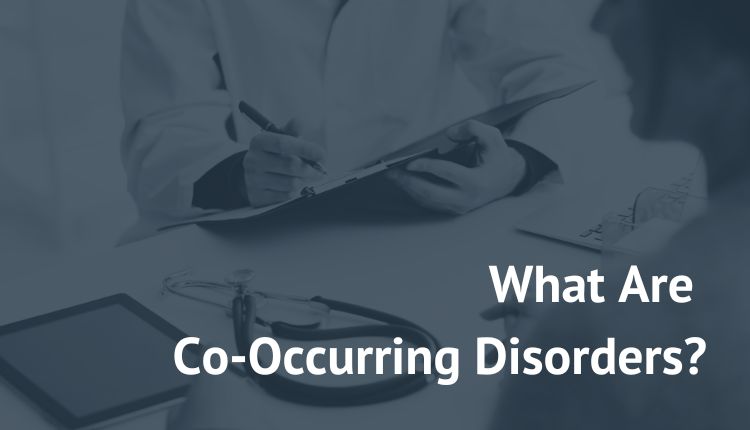Co-occurring disorders, also known as dual diagnosis, refer to the simultaneous presence of both a mental health disorder and a substance use disorder. These conditions are complex because each can influence and worsen the other. According to the National Institute of Mental Health (NIMH), people with mental health disorders are more likely to experience substance use disorders, and vice versa. Understanding the unique challenges of co-occurring disorders is key to addressing both conditions effectively, improving treatment outcomes, and enhancing quality of life.
Common Mental Health Disorders that Co-Occur with Addiction
Several mental health disorders frequently co-occur with substance use disorders. These include:
- Depression: Individuals experiencing persistent sadness, hopelessness, or loss of interest in daily activities may turn to substances for relief.
- Anxiety Disorders: Conditions like generalized anxiety disorder (GAD) and social anxiety disorder (SAD) are often accompanied by substance use as individuals try to manage their symptoms.
- Bipolar Disorder: This involves extreme mood swings, and substance use can become a coping mechanism for both depressive and manic episodes.
- Post-Traumatic Stress Disorder (PTSD): People with PTSD may turn to drugs or alcohol to numb the distressing symptoms caused by traumatic events.
- Schizophrenia: Those experiencing psychotic disorders may use substances to manage their symptoms, although this often worsens their condition.
- Attention-Deficit/Hyperactivity Disorder (ADHD): Individuals with ADHD may misuse substances, either due to impulsiveness or as a form of self-medication.
- Personality Disorders: Conditions like borderline personality disorder (BPD) often coexist with substance use, creating challenges in impulse control and relationships.
- Eating Disorders: Conditions such as anorexia or bulimia often accompany substance use disorders, especially when individuals attempt to manage emotional distress or control weight.
Treating co-occurring disorders requires a comprehensive approach that addresses both the mental health condition and the substance use disorder.
Causes and Risk Factors for Co-Occurring Disorders
Understanding the factors contributing to co-occurring disorders is essential for creating effective prevention strategies. Key risk factors include:
- Genetic Predisposition: A family history of mental health or substance use disorders increases the likelihood of developing both conditions.
- Brain Chemistry: Imbalances in neurotransmitters, which regulate mood and behavior, can play a role in the development of co-occurring disorders.
- Environmental Factors: Stressful life events, trauma, or childhood experiences such as abuse or neglect can increase the risk.
- Social and Psychological Factors: Issues like peer pressure, social isolation, and low self-esteem may contribute to the development of these disorders.
- Developmental Factors: Early exposure to substance use or trauma can increase the likelihood of co-occurring disorders later in life.
While these factors increase the risk, they do not guarantee the development of co-occurring disorders.
Diagnosing Other Disorders with Addiction
Accurate diagnosis is crucial for effective dual diagnosis addiction treatment. Diagnosis involves a comprehensive evaluation of a person’s medical, psychological, and substance use history. Clinicians must carefully distinguish between symptoms caused by mental health conditions and those related to substance use. Continuous monitoring is essential, as symptoms may evolve over time.
Integrated Treatment for Co-Occurring Disorders
The most effective approach to treating co-occurring disorders is integrated treatment, which addresses both conditions simultaneously. Key elements include:
- Coordinated Care: A team of specialists, including psychiatrists, addiction counselors, and therapists, collaborates to create a consistent treatment plan.
- Personalized Treatment: Each individual’s treatment plan is tailored to their specific needs, incorporating therapies such as cognitive-behavioral therapy (CBT) and medication management.
- Trauma-Informed Care: Treatment plans often include trauma-informed approaches, recognizing that past trauma may contribute to both the mental health disorder and substance use.
- Relapse Prevention: Strategies to prevent relapse are an essential component of treatment, helping individuals recognize triggers and develop coping mechanisms.
The Role of New Paradigm Recovery
At New Paradigm Recovery, we specialize in dual diagnosis addiction treatment and offer integrated care for both mental health and substance use disorders. Our comprehensive programs are designed to help individuals navigate the complexities of co-occurring disorders through personalized treatment plans that focus on long-term recovery. Our outpatient services in Northern Virginia provide the support needed to manage both conditions effectively, improving overall well-being.
By addressing both mental health and addiction challenges together, we empower our clients to build a healthier, more fulfilling future.

